
Mon panier
Notre transporteur reprend les livraisons chez les particuliers uniquement en rez-de-chaussée et interdit celle à l’étage.
Aucune commande ne sera livrée en dehors de la France territoriale. Pour les départements de la CORSE et l’ETRANGER : nous consulter
Le client s'engage à réceptionner la marchandise dans un délai de 7 jours à compter de la date de commande, passé ce délai, nous nous réservons le droit d'appliquer des frais de 60€ TTC facturés par notre transporteur.
Le panier est vide...
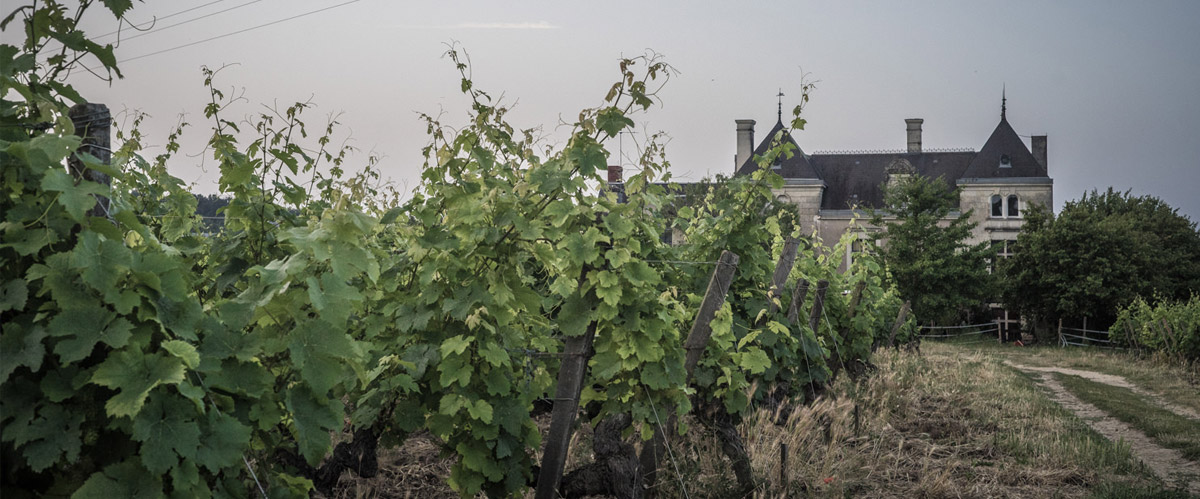
Organic and Biodynamic winemaking:
an adventure for the Filliatreau team!
After converting all the vineyards on the estate to organic agriculture, the Filliatreau Domain embarked on an even more demanding approach: biodynamic winemaking. Far from being a commercial choice, this way of producing wine is, above all, based on the desire to respect nature and to create a lasting connection to the land. Jean, head of cultivation at the domain, has witnessed first-hand the changes in cultivation methods and is the leading contractor along with his colleague, Nicolas. They tell us more…
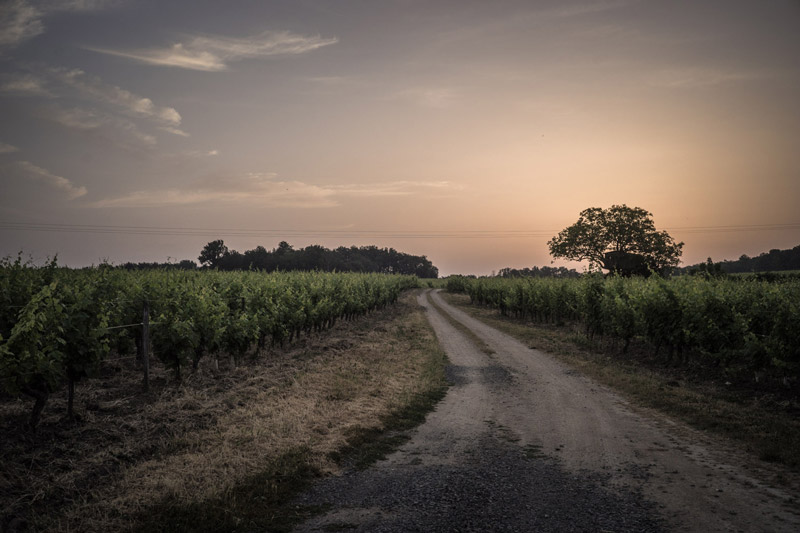
Why did you choose organic and biodynamic cultivation ?
In our line of work, we are in direct contact with nature and have noticed the rise in extreme weather episodes and overall imbalances in nature: heat waves, droughts, late spring frosts… and we want to do something ourselves to help. There is no question that what we eat and drink directly influences our health !
Respecting the soil and plants also means respecting those who work with them, in the middle of healthy fields, and of course the consumer at the end, who enjoys a product without residues.
We need to understand that organic and biodynamic cultivation are complementary in order to better respect the land, the products grown, and the consumers. For us, one cannot go on without the other !
- The organic method guarantees the absence of synthetic products (pesticides, insecticides, weed killers, etc.) during cultivation and winemaking without adding chemicals.
- The biodynamic method is complementary to organic farming. It consists in using cow-horn manure, silica, and plant infused preparations mixed with energised water. This technique helps give energy to the earth and plants, and strengthen their natural defences. The transition from organic to biodynamic farming requires an additional year.
- Ensuring the transition to organic farming, then biodynamic, on 45 hectares of vineyards, was a real challenge for the Filliatreau team ! To date, 15 hectares are already organic and biodynamic. By 2020, everything will be organically grown, and therefore biodynamic a year later in 2021.
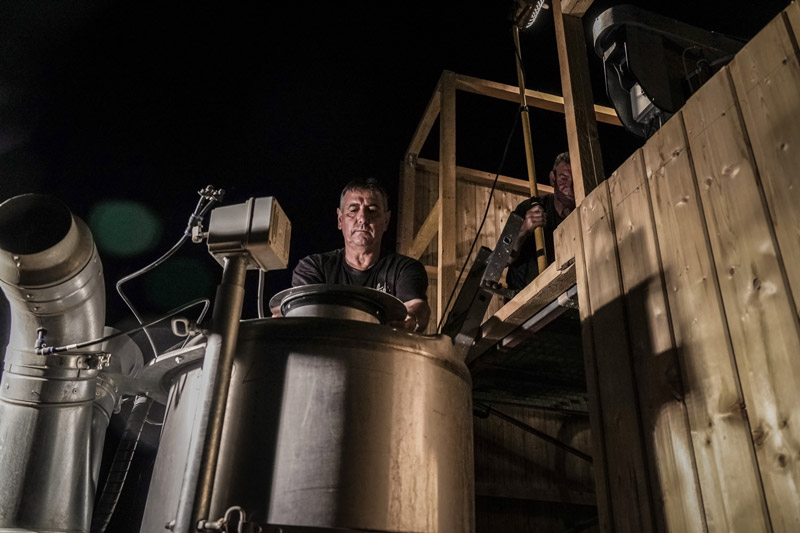
What are the main principles of organic farming?
The first principle is to work the soil, throughout the crop cycle :
- After the harvest, a so-called ‘puff-up’ stage, to allow earthworms to settle and aerate the earth – 15 days of work for two people.
- In spring, the so-called ‘ploughing’ stage, to remove grass at the base of the vines, a source of humidity, and to avoid freezing – one month of work for two people.
- In summer, avoid any grass regrowth that would weaken the vine.
- However, the grass has a role to play in each plot, since every second row is grass, with an inversion each year. But the grass is under control, it is not a question of letting it invade the vines but rather of regenerating the earth. This requires diligent maintenance to uphold the right balance.
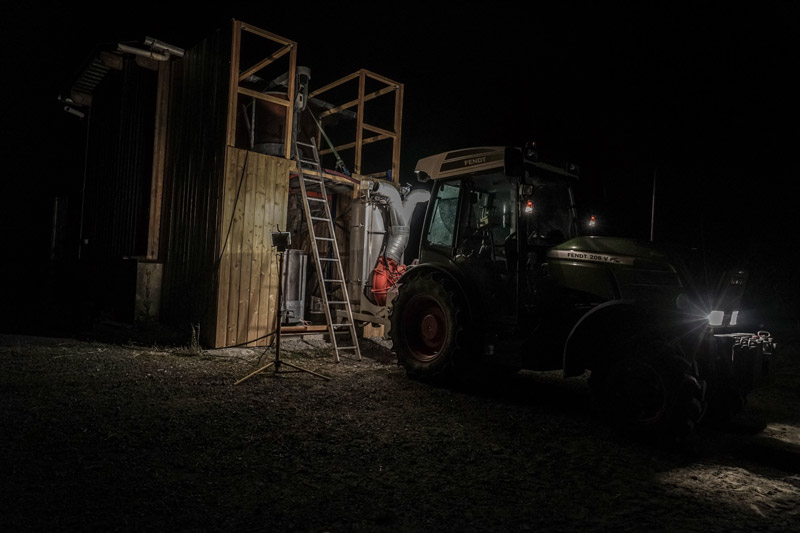
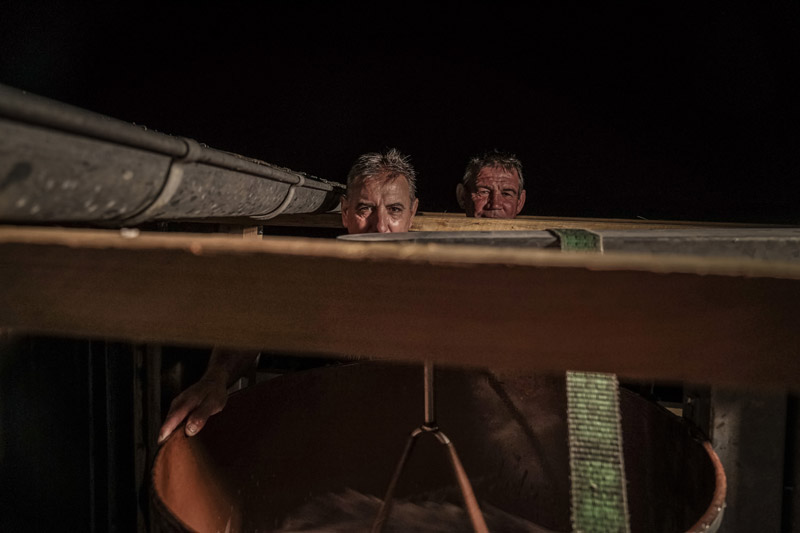

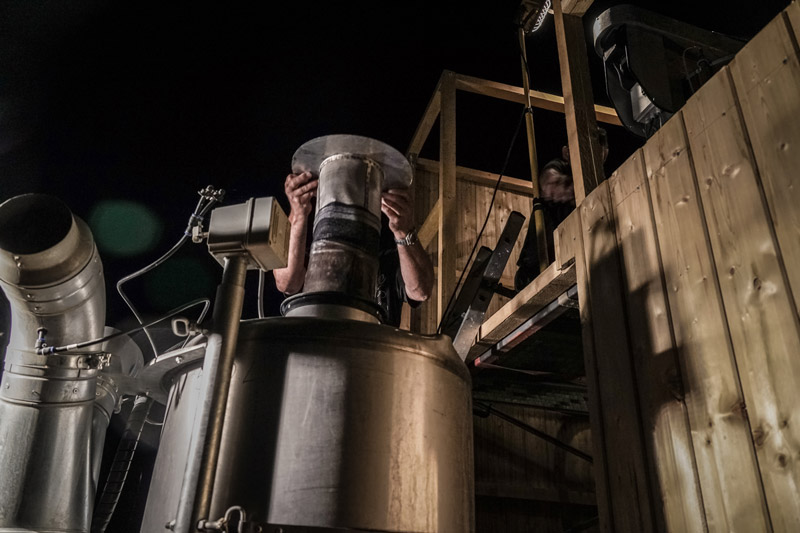
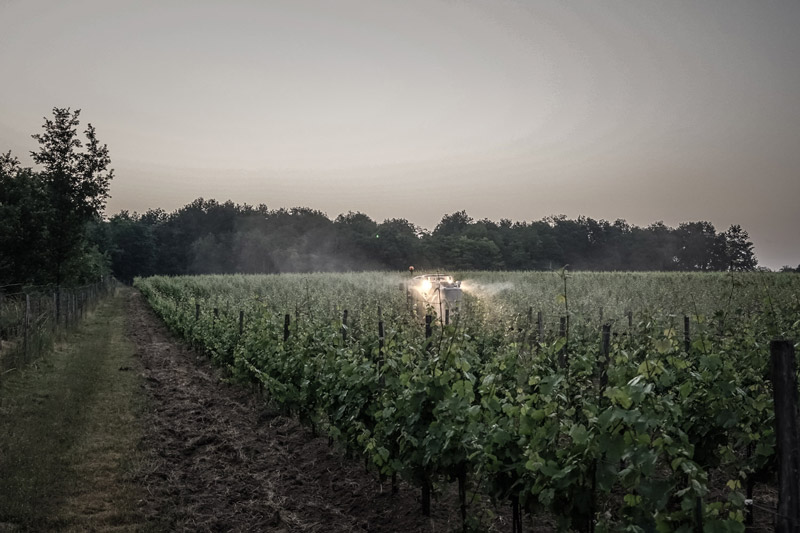

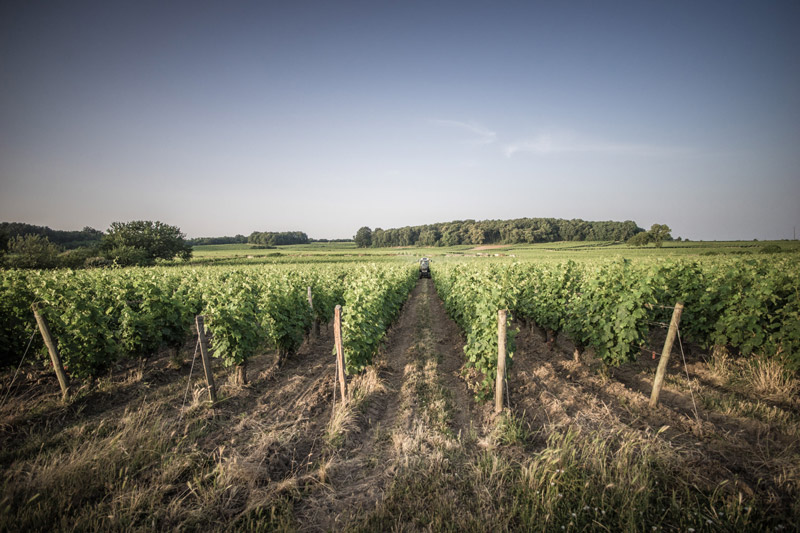
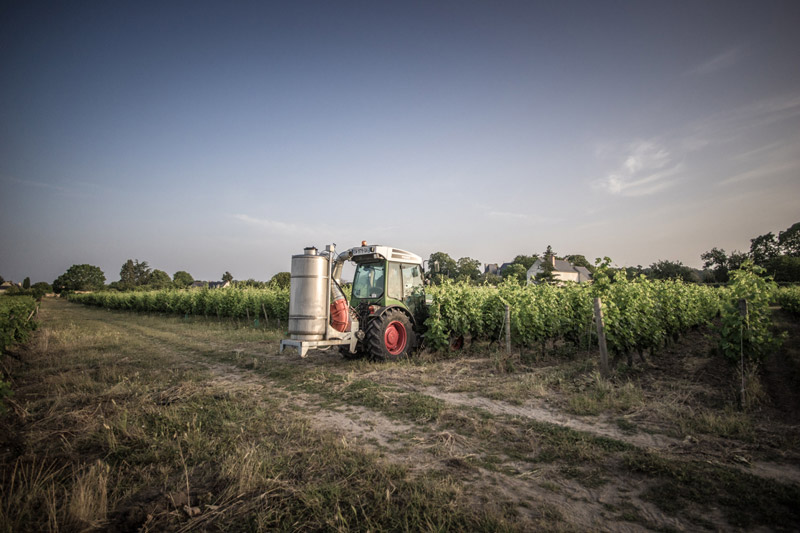

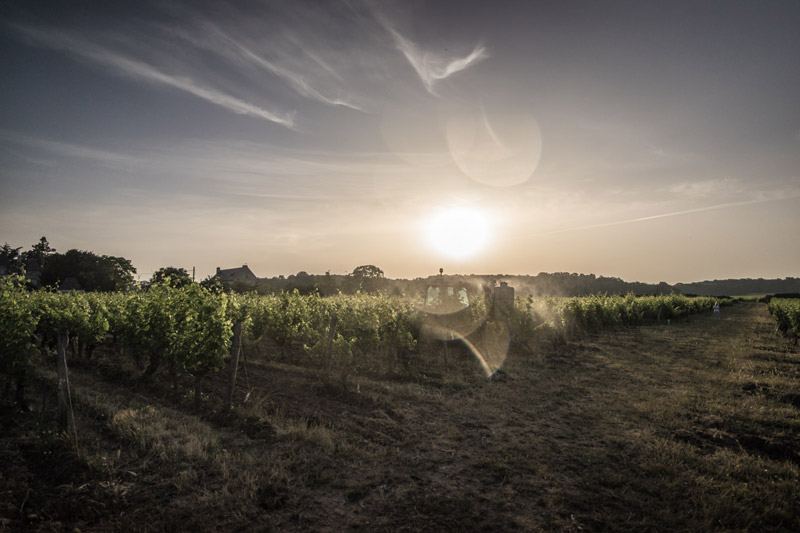
How does biodynamic cultivation complement organic principles?
As a basic treatment, biodynamics will strengthen the plant’s immunity. Preparations based on plants or natural materials are used for this. You have to know the type of plant, the plot and type of land, and know how to observe the signals sent by nature. These preparations need to be applied according to the lunar calendar, at very specific times of the day or night.
There’s nothing magical about biodynamics! Only the result of observing natural cycles. We owe its principle to Rudolf Steiner, a philosopher who gave a series of lectures on this subject in 1924.
« This is a return to basics: we have the knowledge, we had forgotten about it during the era of mechanisation and when we took chemistry to the extreme…
And now, we have scientific proof that it works ! »
In practice, how do you implement biodynamic farming ?
The preparations :
- The primordial preparation is cow-horn manure: it provides the soil and plant roots with the microbial life necessary to develop properly.
- A composition based on silica (ground quartz powder) is also applied.
These two treatments combined literally regenerate the land and vineyard life.
- Infusions and macerations prepared in energised water with plants and minerals are also made.
- Dynamisation: this action consists in creating a whirlpool (vortex) in warm water, then vigorously inverting the current (chaos) before creating a new whirlpool in order to allow the energetic properties of the added matter to go in the water. Dynamisation is carried out by Olivier from our team.
- Spraying: these preparations are then sprayed in the vineyard plots, in a homeopathic quantity, in order to stimulate the natural defences of the plant.
- When is the spraying done ?
Biodynamics places great importance on the rhythm of nature and the influence of celestial bodies, particularly the lunar cycle. Spraying is completed before sunrise, and requires great rigor in monitoring the lunar calendar.
Jean and Nicolas had to be very patient and persistent:
you don’t see the results of this technique on the vine and grapes until after five years of hard work!
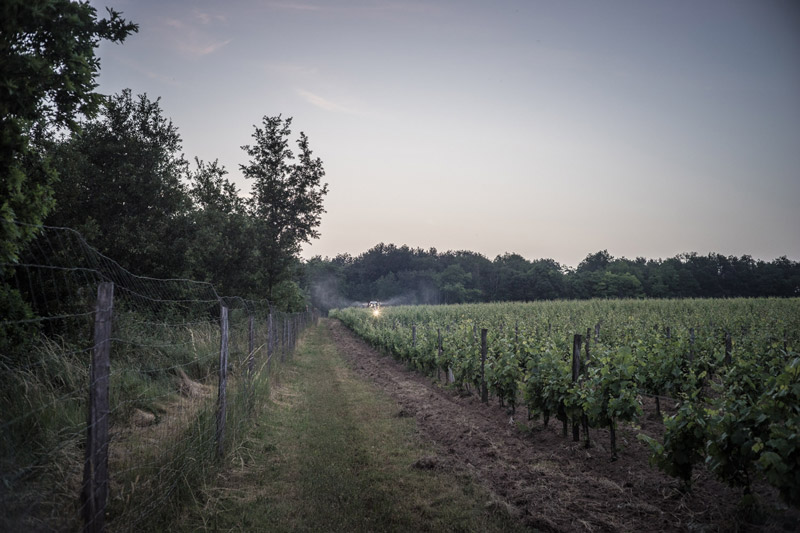
Which certification assures biodynamic cultivation ?
The Demeter certification guarantees that the labelled product comes exclusively from farms where biodynamic agriculture is practised. This logo can only be affixed if the whole farm is cultivated using biodynamic techniques.
Similar to the AB certification in organic farming, it guarantees that the labelled techniques are done in compliance with strict rules, and not as a ‘rookie.’ It should be understood that organic and biodynamic farming are not synonymous with ‘carelessness’ (letting the grass invade the vines, for example) but on the contrary, are meticulous jobs that take time. While chemical weeding for each row (glyphosate) requires one hour of work per hectare, manual weeding requires 10 !
You need to go through each row about four times, working rigorously in an organized way with specific tools (there is a sprayer dedicated to each preparation).
« For example, if it rains 25 millimetres after spraying, it is necessary to start again since we only use contact products that are washed off in the rain. »

And concretely, how can we tell that "the Earth is getting better" ?
« The whole ecosystem is being revitalised ! »
Thanks to the work being done with the soil, microbial life develops, earthworms resettle and aerate the ground: the soil breathes better.
We are also seeing wildlife return, which is a very good sign: partridge nests, with many eggs, hares in the plots… we hadn’t seen them in a long time!
| Domaine Filliatreau
Open every day from 10 a.m. to 6 p.m. from April to October |